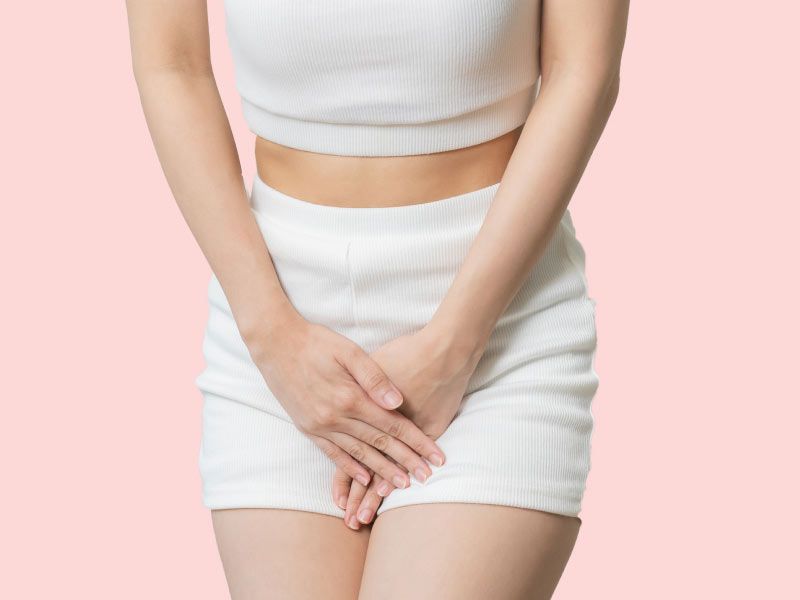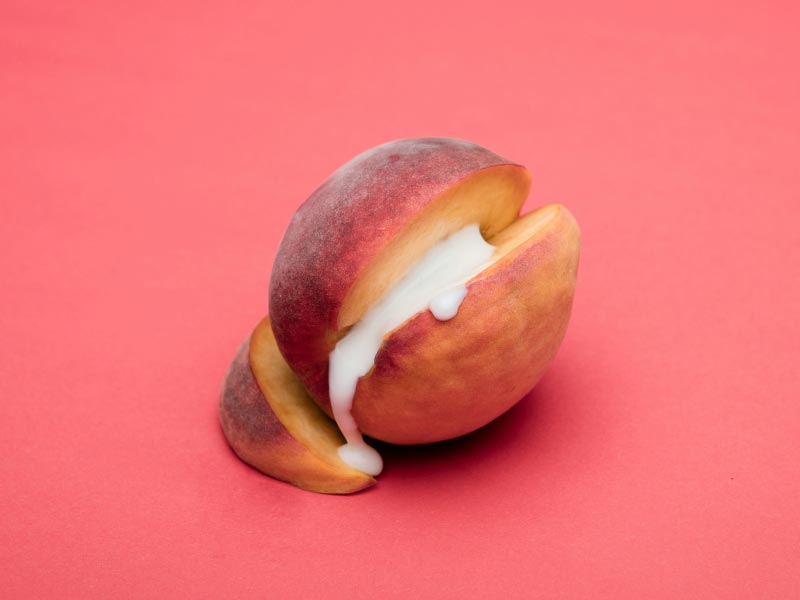
How Do I Cure BV In One Day
Published on September 8, 2020
Updated on November 6, 2025
Written by Kathleen Morrison
Medically Reviewed by Andrea Sleeth WHNP-BC, MSCP
Key takeaways
- BV happens when the balance of good and bad bacteria in your vagina is off, causing odor, unusual discharge, and sometimes itching or burning.
- Symptoms can look like yeast infections or STIs, so getting checked by a provider is the fastest way to know what’s really going on.
- Prescription antibiotics clear BV quickly—usually within 2–3 days—so you don’t have to suffer through lingering symptoms.
- Small at-home steps like wearing breathable cotton underwear, eating probiotics, staying hydrated, and practicing good hygiene can support vaginal balance and reduce recurrence.
- Avoid risky DIY remedies like inserting yogurt, garlic, or undiluted essential oils—they can make symptoms worse rather than better.
How to cure BV in one day
Whether you're first noticing a bit of an itch, or struggling with chronic "fishy" smelling symptoms every time you have sex, it's natural to want to know how to get rid of the cause as soon as possible. Bacterial vaginosis is one of the most common types of infections and is often the cause of unusual vaginal odor and discharge.
Being able to spot common BV symptoms is the first step toward seeking treatment and finding relief. Because bacterial vaginosis is uncomfortable and disruptive—most people with vaginas will get BV at least once in their lifetime—100% of them want to know how to get rid of BV as quickly as possible. Thankfully, BV is easy to treat and fairly easy to avoid, too.
What is BV?
Most commonly found in people between the ages of 15 to 44, bacterial vaginosis refers to a vaginal infection that occurs when you have an overgrowth of bacteria. While your vagina usually has a balance of both good and bad bacteria, BV means there's an excess of bad bacteria.
Your "good" bacteria work to keep other troublesome bacteria from growing out of control and causing those familiar, unpleasant symptoms, but sometimes things happen that may get in the way of the good guys doing their jobs. Foreign semen or saliva from oral or penile sex can lead to a bacterial imbalance in your vagina.
Though it's possible you won't experience any of these (fingers crossed), here are some common symptoms that can indicate you have BV:
- Unpleasant, fishy odor
- Vaginal itching or pain
- Burning during urination
- Inflammation
- Thin, gray, white, or green vaginal discharge
It's possible that you may have symptoms that come and go, or you may not notice them at all if they're mild. Either way, it's important to consult with your provider if you suspect you have BV.
How do I know if I have BV or an STI?
Trichomoniasis, or trich, is a common STI that shares a lot of symptoms with BV. STIs can have long-term impacts on your reproductive health, so it's important to know as soon as possible if you have one.
The only 100% effective way to know if you have an STI? Get an STI test for Trichomoniasis. The sooner you get tested, the sooner you can take the appropriate antibiotics. If it is your first time experiencing BV symptoms, your provider may ask you to take an STI test to verify your diagnosis so they can provide proper treatment and protect you and your sexual partners.
Though a trich infection tends to stay within the vagina, vaginal canal, and vulva, it spreads easily to your partner(s), especially if you're not aware you have it.
Ultimately, if you have symptoms that resemble either BV, trich, or both, you can ask your provider to test you for both so you know for sure. They'll probably also ask you a few questions to see which infection you're likely to have. For example, they may ask if you've had unprotected sex or sex with multiple partners if they suspect you have trich.
How do I know if it's BV or yeast?
Yeast infections are another very common type of vaginal infection that also causes itching, inflammation, and changes in discharge. It's very easy to get the two mixed up!
However, the treatment for yeast infections and the treatment for BV are very different—yeast infections require antifungal medication while BV requires antibiotics (they aren't interchangeable—if you get the wrong treatment, it won't work against your infection).
There are a couple of key differences in symptoms that can help you identify whether you're dealing with BV or a yeast infection:
- Odor: BV infections typically have a tell-tale fishy smell that will be very strong—there's no mistaking it. Yeast infections tend to be odorless, or you may pick up a very mild yeasty odor that may remind you of bread.
- Discharge: BV discharge is thin and will be a grey or greenish color. Discharge from a yeast infection will be thick, white, and chunky. It's often described as having a cottage cheese-like texture.
Additionally, you're more likely to experience itching with a yeast infection. BV can also cause itching, but it will probably be more severe and apparent with a yeast infection. If you still aren't sure which type of infection, document your symptoms thoroughly and let your provider know. They will be able to give you the right diagnosis and corresponding treatment to get you back on track!
Wisp treatment options are available only after consultation with a licensed medical professional. You should consult with your healthcare provider before starting a new supplement or treatment regimen. Individual results may vary.
Can BV go away on its own?
It is possible for BV to resolve on its own, but it’s often not worth waiting. If BV does go away on its own, it typically takes at least 2 weeks, during which time you’ll be suffering from uncomfortable and unpleasant symptoms.
You may spend that time waiting, and your infection doesn’t get better! Getting prescription BV treatment will clear up your symptoms in 2-3 days, and you can feel confident that your BV is taken care of.
If you’re pregnant or undergoing any medical procedures, it’s especially important to have your BV taken care of sooner rather than later. BV can contribute to early birth in pregnancy and can increase your risk of infection during gynecological procedures. Antibiotics can help you avoid any long-term complications from BV.
Wisp does not offer BV treatment for pregnant patients. If you’re pregnant or suspect BV during pregnancy, contact your OB-GYN for evaluation and treatment.
Treating BV with prescription meds
If you're sure you have BV, a provider can provide the appropriate treatment for how to get rid of bacterial vaginosis. The fastest way to consult a medical provider and get treatment is through an online consult. Though BV can resolve on its own, there are several ways to treat it if it persists.
To treat chronic BV (i.e., an active infection that is not lessening in response to lifestyle changes), a medical professional will prescribe you an oral or vaginal antibiotic, such as metronidazole, tinidazole, or clindamycin. These FDA-approved antibiotics are the most trusted acute treatment for reducing the number of BV-causing bacteria.
Many people also find that they experience BV infections that recur around certain times in their cycle or consistently find themselves with a BV infection after having sex. This is normal! It just means your vaginal balance may be more sensitive than most to environmental changes or hormone fluctuations.
How to treat BV at home
While prescription antibiotics are the fastest way to clear an active BV infection, there are at-home approaches that can support vaginal balance alongside medical guidance:
- Stick to soaps and detergents formulated for sensitive skin.
- Avoid fragranced or flavored products, including lubricants or condoms.
- Consider over-the-counter options like boric acid capsules, which some people use to support a balanced vaginal environment (always consult your provider before use, especially if pregnant).
- Maintain good hygiene habits and pay attention to changes around your cycle or after sex that may make your vaginal environment more sensitive.
These small, at-home steps can help your vaginal environment stay balanced, making it easier for prescription treatment to work and lowering the chances of recurrent discomfort.
Supplementary support for BV
If you're still experiencing repeat infections, there are over-the-counter options, supplements, and lifestyle changes that can help support your recovery and work in conjunction with antibiotic treatments to keep BV from coming back! Make sure to always consult with your provider about which of these methods might be right for you.
Boric acid as a go-to at-home option
Boric acid has been used for over 100 years to support vaginal health. Available over the counter in gelatin capsules, it’s inserted into the vagina—often after sex—to help maintain balance in the vaginal environment.
If you decide to try boric acid, it’s important to use it only vaginally, keep it away from children and pets, and consult your provider first—especially if you’re pregnant—as it’s toxic if swallowed.
These statements have not been evaluated by the Food and Drug Administration. This product is not intended to diagnose, treat, cure, or prevent any disease.
Yogurt for a natural probiotic boost
Not only is yogurt a yummy treat, but it may also aid in your BV management! Yogurt can help create a more balanced vaginal environment and is great for your gut health, too. According to the Mayo Clinic, this natural probiotic contains plenty of healthy bacteria that can help fight off bad bacteria. Opt for at least one serving per day to get the full benefits that come from yogurt.
Probiotics for good bacteria!
As mentioned above, yogurt contains beneficial probiotic bacteria, but if you don't like yogurt, you can take a probiotic supplement to introduce healthy bacteria into your body. When you take them daily, they can help support your gut and bacteria, making it easier to manage the frustrations of BV.
Whereas antibiotics kill off both good and bad bacteria, probiotics and yogurt only help replenish the good, beneficial bacteria.
Stay dry with breathable cotton underwear
When it comes to your undergarments, opt for breathable materials like cotton to help avoid "trapping" BV bacteria in there. Cotton underwear isn’t required all the time to manage BV, but it’s recommended when symptoms are present.
Underwear made out of spandex, for example, can trap moisture that harbors bacteria and worsens BV. It's also best to avoid tight pants when you have BV. But who’s complaining? Life’s too short to be uncomfortable all day.
“Natural BV remedies” to be wary of
Googling "natural BV remedies" will serve up a lot of tips on how to get rid of BV at home—unfortunately, not all of these methods will help, and a lot of them are harmful!
Applying yogurt for BV
You may have seen some tips that suggest applying yogurt directly to your vagina. Yeah… Don't follow that advice.
Putting yogurt on or in your vagina can hurt more than it helps, especially if the yogurt contains sugar. Getting sugar in your vagina can lead to uncomfortable yeast infections. Plus, like, the mess? Just stick to using it the old-fashioned way—eating it.
Inserting garlic for BV
Garlic has plenty of antibacterial properties that are believed to help manage BV, and many home remedy tipsters suggest inserting a clove of garlic into your vagina to rebalance vaginal pH.
Not only will this be super uncomfortable (especially with an active infection!), but it also won't be effective—the key ingredient only activates when garlic is chopped up, and it's definitely not a good idea to put chopped garlic up there.
Feel free to add garlic to your diet or opt for a garlic supplement for its nutritional benefits, but make sure to only consume your garlic through the hole in your face.
Tea tree oil for BV
Tea tree oil has plenty of antibacterial and antifungal properties, but this essential oil isn't monitored by the Food and Drug Administration, which means it's easy to purchase a product of questionable quality (not something you want if you're putting it near your genitals).
Essential oils are also very, very concentrated and shouldn’t be used without diluting them with a carrier oil like coconut or almond oil.
Finally, loads of people are super sensitive to essential oils like tea tree, so it’s better to err on the side of caution with these things.
Tips to manage BV recurrence
Along with knowing how to treat BV symptoms, it helps to adopt at-home practices that support vaginal balance and lower the chances of BV coming back. Here are some tips to help you manage recurrence through simple lifestyle habits:
- Practice safe sex. Use condoms to reduce your risk of getting BV. It's good to be aware that having multiple sexual partners can also increase your chances of getting BV.
- Maintain good hygiene. When you go to the bathroom, wipe from front to back to avoid stool contamination in your vagina. You also need to change your pad or tampon regularly throughout your period. Practicing good hygiene overall can help resolve many BV cases quickly.
- Avoid douching. Douching can alter your vaginal pH, which increases BV vulnerability. Not only that, but it can actually make it worse or cause it to recur. Because of this, it's best to avoid douching altogether.
- Avoid scented soaps, lotions, or detergents. Stick to fragrance-free options and things labeled for sensitive skin. These products are less likely to cause irritation generally and can help maintain the health of your vagina.
- Wash up before and after sex. This will help reduce the number of bacteria in your genital area and reduce the likelihood of introducing infection-causing bacteria into your vagina.
Take charge of your vaginal health
Whether your BV symptoms are mild or more intense, the main takeaway is this: getting treatment matters. Prescription medications are the fastest, most reliable way to clear an active infection, while supplementary approaches—like boric acid capsules and lifestyle adjustments—can help support your vaginal balance and make it easier to stay symptom-free. Think of it as a tag team: prescription meds tackle the infection, and at-home strategies keep things steady afterward.
Ignoring BV isn’t worth it. Untreated BV can increase your risk of STIs and fertility issues down the line. The best approach is to stay on top of your treatment plan, follow your provider’s guidance, and support your vaginal health with sensible at-home practices.
Ready to tackle BV with confidence? Get in touch with a Wisp provider to get a personalized treatment plan and prescriptions sent straight to your local pharmacy—your vaginal health doesn’t have to wait.
This blog post is for informational and educational purposes only and should not be taken as professional advice. Always consult with a qualified professional before making any decisions based on the information provided here.






